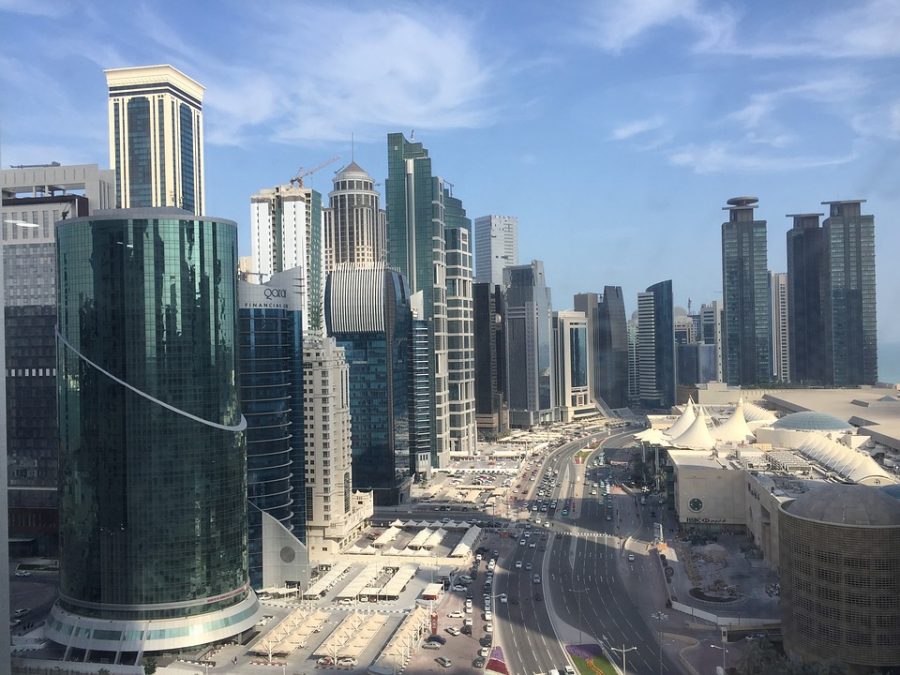The FIFA World Cup Is Being Built on the Backs of Slaves
March 6, 2018
The phrase “World Cup” brings to mind images of cheering soccer fanatics, seas of multi-colored jerseys, and grandiose plexiglass stadiums. For good reason, it usually isn’t associated with slave labor. In the case of the 2022 FIFA World Cup, however, one truth is rapidly becoming undeniable: the infrastructure of that quadrennial sporting event is being built by exploited workers.
The tiny, fuel-rich nation of Qatar is on course to be the playing field for that World Cup. Like many other Middle Eastern nations, it routinely imports workers from South Asian countries—such as Bangladesh and Nepal—under a system called “kafala,” or sponsorship. Under kafala, the government of these nations allows companies or individuals to sponsor migrants who wish to immigrate to these nations. Sponsors are thus essentially employers, but the powers they possess are far more authoritative than those of a traditional boss or manager: sponsored migrants aren’t allowed to change or quit the job they’re given by their sponsor without that sponsor’s permission, and if they do, their visa may be cancelled by their sponsor, rendering them vulnerable to deportation proceedings or even jail time.
Additionally, despite passport confiscation of migrants being illegal in all nations with kafala, many sponsors will do so anyway if they determine that their sponsored migrant has transgressed in some way. Due to these possible consequences, most migrants will not speak out when they are exploited by their sponsors—such as when their wages are withheld—and are thus rendered even more vulnerable to further exploitation. Many migrants are also brought into these countries on false pretenses and then find themselves trapped by sponsors who barely pay them yet hold an immense degree of power over them, making them slaves in all but name.
In Qatar, these sponsored migrants are the ones building the lavish stadium that will host hundreds of soccer players and thousands of fans. According to FIFA’s commission on human rights, more than 30,000 Asian migrants are expected to be working on the infrastructure for the cup by this year. These migrants work continuously in the oppressive Qatari heat, and most are not compensated adequately for their pains: in a survey conducted by Amnesty International, it was revealed that more than half of migrants were employed under misleading circumstances and thus received much less money than what they had originally been promised.
However, the most horrifying statistic is one that the Qatari government has attempted to shroud in arbitrary, broad public statements: hundreds of these workers are dying every year, and there has been no attempt by the government to adequately investigate the majority of these deaths. The Qatari government only claims responsibility for a small number of worker deaths—falls from construction sites. The rest are organized broadly into the category of “natural causes,” which includes those deaths caused by cardiac arrest.
This categorization, however, is misleading—perhaps deliberately. The long hours workers must labor in extremely high temperatures are a direct cause of their deaths from “natural causes.” In the oppressive heat, workers are extremely susceptible to cardiac arrest and strokes. According to Human Rights Watch, the Qatari government has made minimal efforts to protect the workers—only giving them some work breaks during the midday. Their work hours are structured around time, not temperatures, despite the two not always coinciding. Migrants are even required to labor during the months of July, August, and September, when ordinary Qatari citizens will almost never be found outdoors.
As such, it’s clear that reform must occur. However, even reform might not be enough. For eight years, there have been calls by humanitarian agencies for new guidelines on workers’ rights and investigations, and for four years, there have been recommendations on how to do so. Even so, construction has continued, and migrants continue to be exploited. The Qatari government must take responsibility for the human rights abuses that have occurred on its watch, as must FIFA. Additionally, international pressure for unbiased, thorough investigations and true reform must be put upon both bodies. If the world’s reaction to the abuses occurring daily in Qatar continues to be one primarily of apathy, we will essentially be condoning slavery.

















































































































































